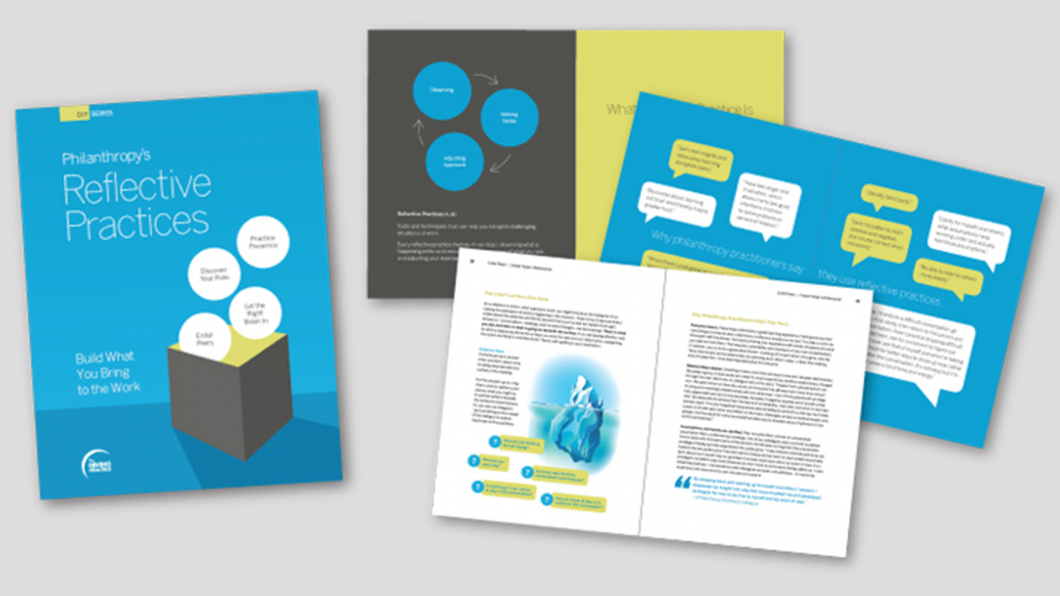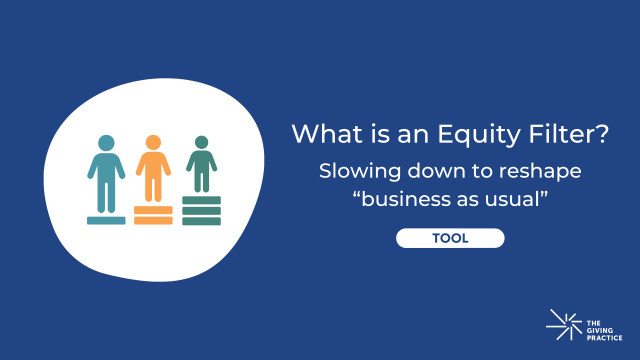
What keeps you up at night? Our hunch, based on interviews with dozens of skilled philanthropy practitioners, is that it’s not the “what” of your work. You care deeply about a place, a field or an issue. You work hard to stay on top of content knowledge. You network to learn from others. It takes time and vigilance but you can do it. Rarely does that information get in the way of a good night’s sleep.
What challenges philanthropy practitioners is the “how” of that work.
Consider these examples:
- Despite a year of building a strong technical case, a CEO struggles to get his board to thoroughly consider a promising new strategy.
- Thinking she has buy-in for an innovative equity-related program, a program director is surprised by fierce resistance from her peers during budget reviews.
- A potential grantee is not being forthcoming on the phone, and the new program officer on the other end wonders what might shift the power dynamics and open up the conversation.
- An executive director struggles with helping her board understand the relationship between inclusion and transparency.
- A senior program officer struggles to manage the tension between gaining the trust of grantees and scaling a program at a pace that works for his foundation.
These are the kinds of dilemmas that keep practitioners up at night.
Philanthropy is so resource-rich it is hard to acknowledge that the work can be difficult. Whether you are helping to advance equity and inclusion in an organization or field, building a trusting relationship with partners, or finding new ways to engage with grantees or communities, there will be complexity, ambiguity, urgency and conflicts. Even equipped with outsized resources, technical know-how, and a detailed map, you and your partners will experience the sinking sponginess of the territory as you navigate its twists and turns.
As part of our Philanthropy’s Reflective Practices project, we’ve interviewed dozens of talented practitioners to learn how they face the challenges that come with good work. We shared their stories on this site, heard that their approach to each problem resonated with other philanthropy practitioners and decided to dig a little deeper into how they did it.
We found a distinct response pattern among skilled practitioners despite their varied styles of working, size of giving or type of challenges.
First, they find ways to step back for a new vantage point to observe themselves and others.
Second, they have back-pocket tools that are easy to access and help them and others dive into conflicts and misunderstandings to identify what keeps a conversation or strategy stuck.
Finally, they are willing to test and learn with small and large behavior adjustments to fit a new hypothesis about what is needed.
These are reflective practices, and we wrote a new guide, Philanthropy’s Reflective Practices, to highlight four of them: Discover Your Role, Practice Presence, Let the Right Brain In, and Enlist Peers.
We want to encourage the development of reflective practices in philanthropy. We think they hold the answer to hardy perennial questions like how to strengthen relationships when there are power imbalances; how to sustain transformational work like diversity, equity and inclusion strategies where being right is not enough; how to build meaningful connections when there is urgency to act or disagreements about direction. They also make problem-solving more creative and interesting and create the opportunity for lifelong learning about oneself and others.
Want to join this exploration? Learn from your peers: Read their posts on this website and download the guide to learn what your colleagues have done. Test drive the four core reflective practices against your latest challenge. Even better, tell us you’d like to share your own practice with the field! We’re especially interested in learning more about how teams and organizations have used reflective practices together and what impact it has had for them. Let us interview you and post your story to share with colleagues.
Initially funded by the Ford Foundation, Satterberg Foundation and the Hemera Foundation, Philanthropy’s Reflective Practices is a project of The Giving Practice, the national consulting arm of Philanthropy Northwest. Our purpose is to help you build what you bring to the work.
For more information about Reflective Practices, please click here.



